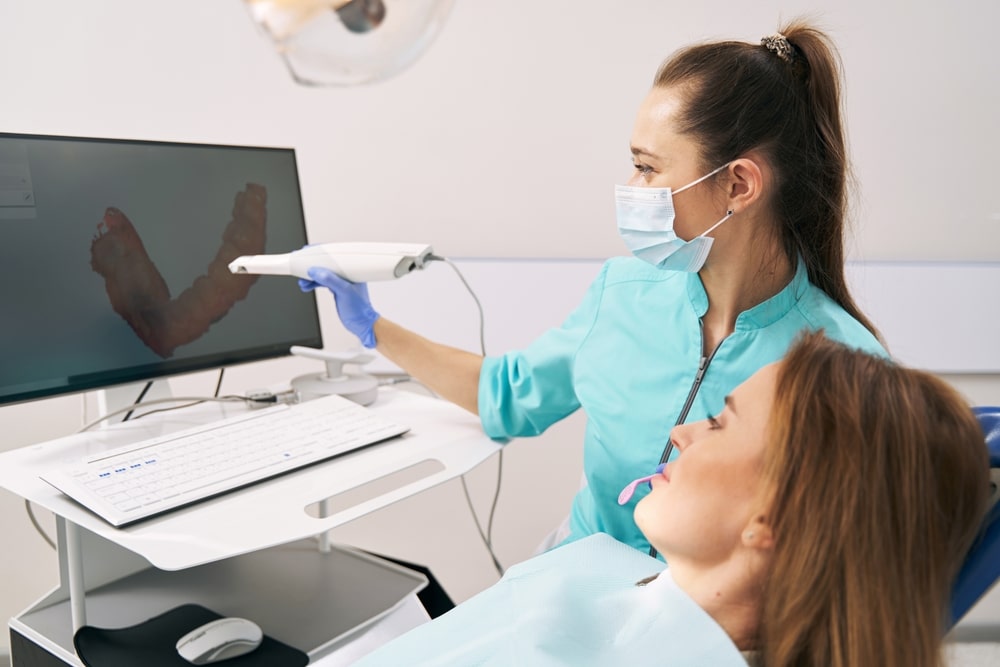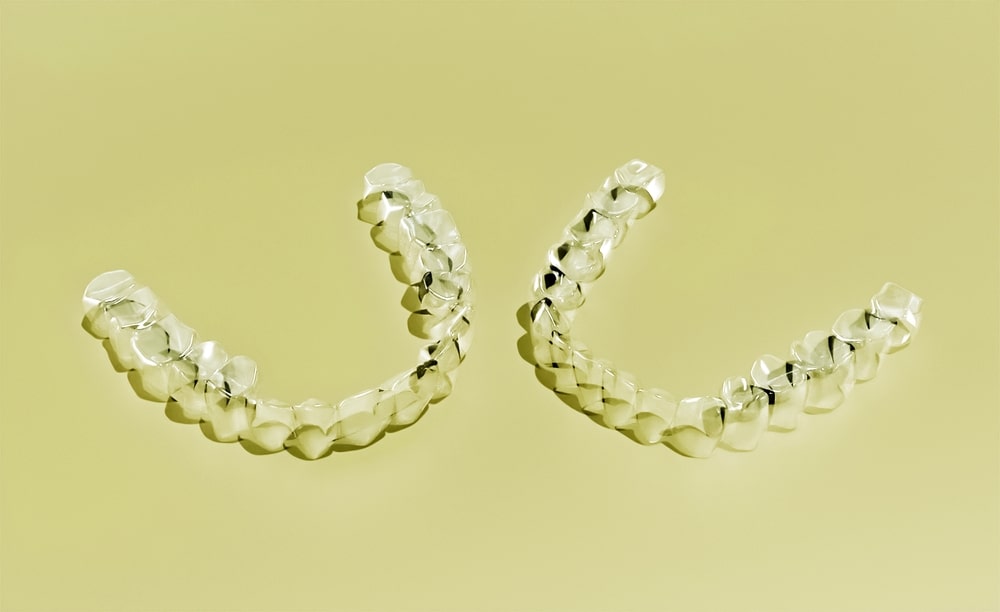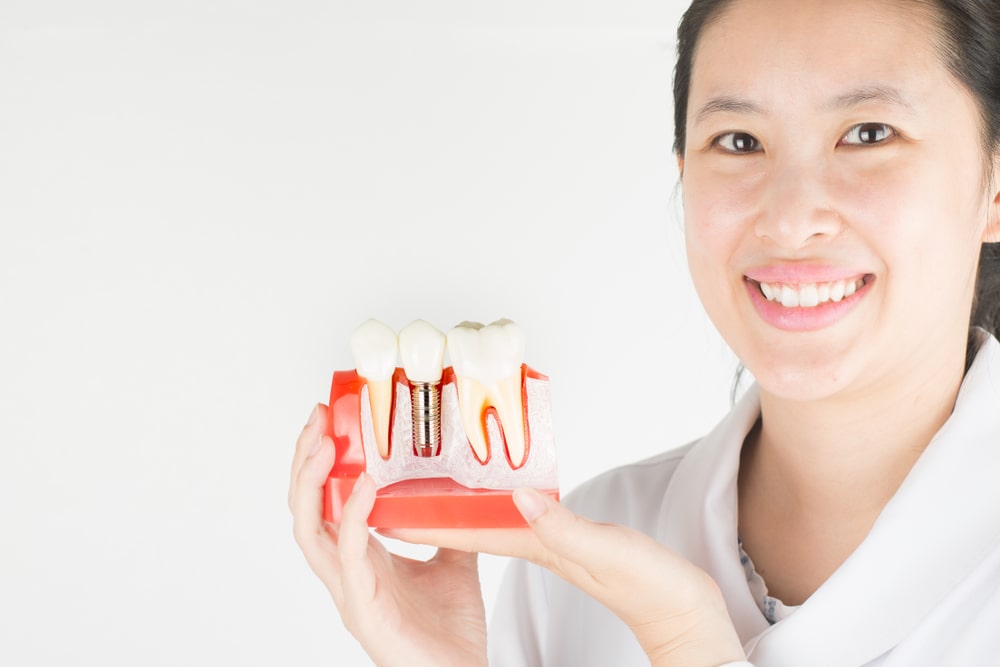All-on-4 dental implants represent a groundbreaking advancement in dental restoration, offering patients a full-arch prosthesis anchored by just four implants. This technique has revolutionized the approach to treating edentulism (toothlessness) and has significantly improved the quality of life for many patients. At the heart of this transformative dental solution is the dental lab, playing a pivotal role in the production of All-on-4 prostheses. This blog explores the indispensable contributions of dental labs in crafting these life-changing dental appliances.
The All-on-4 Concept
Before delving into the dental lab’s role, it’s essential to understand the All-on-4 concept.
All-on-four implants are a type of dental implant procedure used to provide a permanent solution for patients who have lost most or all of their teeth. This technique involves the surgical placement of four titanium implants into the jawbone to serve as the foundation for a full arch of prosthetic teeth. The main characteristics and benefits of all-on-four implants include:
- Minimal Implants with Maximum Support: Only four implants are needed to support an entire arch of teeth, reducing the need for extensive surgery and bone grafting.
- Immediate Functionality: Often, temporary prosthetic teeth can be attached to the implants on the same day as the surgery, providing immediate function and aesthetics.
- Bone Preservation: The implants stimulate the bone, helping to prevent further bone loss that often occurs with tooth loss.
- Long-lasting Solution: With proper care, all-on-four implants can last many years and are often considered a permanent solution for tooth loss.
Varieties of All-on-Four Implants
While the basic concept of all-on-four implants remains consistent, there can be variations in the materials and techniques used, depending on patient needs, preferences, and the specific case details. Some of these variations include:

- Implant Material: The most common material for the implants themselves is titanium due to its strength, durability, and biocompatibility. However, zirconia implants are also an option, especially for patients with metal allergies or who prefer a metal-free alternative.
- Prosthesis Material: The full arch of teeth attached to the implants can be made from various materials, including acrylic, composite, porcelain, or a combination of these. Acrylic teeth fused to a metal frame are common due to their balance of strength and aesthetic appeal, while porcelain or zirconia prosthesis offer superior durability and a more natural appearance.
- Immediate Load vs. Delayed Load: In some cases, a temporary prosthesis is placed on the same day as the implant surgery (immediate load), which is later replaced with a permanent one after the healing process. Alternatively, in a delayed load approach, the final prosthesis is placed only after the implants have integrated fully with the jawbone, which can take several months.
- Implant Angulation: The angulation of the implants can vary depending on the bone structure and the need to avoid anatomical structures like nerves and sinuses. The rear implants are often angled to provide stable support and to maximize the use of available bone.
- Customization for Individual Needs: The all-on-four procedure can be customized to meet specific patient needs, such as adjusting for bone density, mouth shape, and aesthetic preferences.
In conclusion, while the fundamental principle of all-on-four implants is consistent, there are various adaptations and materials that can be used to tailor the procedure to the individual’s requirements, ensuring optimal results and satisfaction.
The Dental Lab’s Role
1. Design and Planning
The journey of creating an All-on-4 prosthesis begins with meticulous design and planning. Dental lab technicians collaborate closely with dentists and oral surgeons to develop a treatment plan tailored to the patient’s specific anatomical needs. Using advanced imaging techniques like CT scans, the lab creates a precise 3D model of the patient’s jaw, which is crucial for the accurate placement of the implants and the design of the prosthesis.
2. Fabrication of Custom Prostheses
Once the planning phase is complete, the dental lab takes on the task of fabricating the custom prosthesis. This involves crafting the dental bridge that will be supported by the implants. Using state-of-the-art materials such as high-quality acrylics, titanium, and zirconia, lab technicians create a durable and aesthetically pleasing set of teeth. Each prosthesis is custom-made to match the patient’s natural teeth in color, shape, and size, ensuring a natural-looking and comfortable fit.
3. Ensuring Precision and Fit
Accuracy is paramount in the production of All-on-4 prostheses. Dental labs employ advanced technology, such as CAD/CAM (Computer-Aided Design and Computer-Aided Manufacturing), to ensure that each prosthesis fits perfectly with the implants and the patient’s mouth. This precision is critical for the long-term success of the treatment, as it affects the comfort, functionality, and appearance of the final prosthesis.
4. Ongoing Support and Adjustments
The role of the dental lab extends beyond the initial fabrication of the prosthesis. Labs provide ongoing support for adjustments, repairs, and maintenance of the All-on-4 prostheses. This ensures that patients continue to enjoy a comfortable and functional dental appliance over time.
Conclusion
Dental labs play a vital role in the success of All-on-4 dental implant treatments. Their expertise in design, fabrication, and maintenance is essential for creating high-quality prostheses that meet the specific needs of each patient. Through their meticulous work, dental labs help transform the lives of individuals with edentulism, providing them with a functional, aesthetic, and long-lasting dental solution. The collaboration between dental professionals and dental labs is fundamental in delivering the promise of a restored smile and enhanced quality of life through All-on-4 prostheses.




